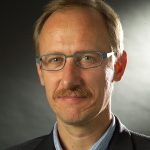Keynote Speakers

Maria Teresa Zanola
La communication spécialisée: la terminologie à l’oeuvre
Résumé
La communication spécialisée contribue à la transmission des savoirs disciplinaires: projets, textes, discours dans les différentes phases de conception, rédaction, présentation et dissémination à tous niveaux reposent sur les conceptualisations et les différentes terminologies des domaines qui les expriment.
Comment envisager le rôle central de la terminologie dans la communication spécialisée pour l’expert et le spécialiste, pour le traducteur et l’enseignant, pour l’étudiant et l’usager ? Cette conférence se propose d’illustrer l’état de la recherche autour de ces questions.
Notice biographique
Maria Teresa Zanola est une spécialiste des études en terminologie et en communication spécialisée (https://docenti.unicatt.it/ppd2/it/docenti/03620/mariateresa-zanola/profilo). Elle dirige l’Observatoire de Terminologies et Politiques Linguistiques (OTPL) de l’Università Cattolica del Sacro Cuore de Milan, où elle est professeure de linguistique française. Elle est présidente du réseau de terminologies des langues romanes REALITER et du CEL/ELC Conseil Européen pour les Langues/European Language Council.
The speaker’s travelling is financed by national funds through FCT – Fundação para a Ciência e a Tecnologia, I.P., under the UIDB/04019/2020 project. // A deslocação da conferencista é financiada por fundos nacionais através da FCT – Fundação para a Ciência e a Tecnologia, I.P., no âmbito do projeto UIDB/04019/2020.

Pamela Faber
Framing LSP
Abstract
Since LSP discourse is goal-directed and formulated with a specific purpose in mind, it is delimited by a communicative context or frame. It is this frame that gives meaning to specialized texts (and the terms that encode the knowledge in them). Using the example of environmental terminology and communication, this presentation shows how frames at the term level capture both the micro- and macro-contexts of concepts. This type of conceptual modelling, which is an integral part of terminology work, reveals the most frequent combinations and activations of terms. The large-scale knowledge structures, thus reflected, reveal how individual concepts are meaningfully related to each other.
However, frames are also present at the discourse level since they determine the configuration of a message as well as the selection of elements that compose it. Framing in communication broadly refers to the act of sense-making through the emphasis of certain aspects of a reality over others. As observed by Goffman (1974), framing an issue organizes thought, and also facilitates certain forms of identity and conduct. This is especially relevant to environmental risk communication since how a message is framed inevitably influences the mindset or perceptions of text receivers, their reaction to it, and the conclusions drawn from it.
Biodata
Pamela Faber (http://lexicon.ugr.es/faber) is Professor Emeritus in Translation and Interpreting at the University of Granada. She has published more than 150 articles, chapters, and books, which have encouraged other researchers to explore specialized knowledge from a frame-based perspective. One of the results of these projects and the practical application of Frame-based Terminology (FBT) is EcoLexicon (ecolexicon.ugr.es), a terminological knowledge base on environmental science.
 Jan Engberg
Jan Engberg
Level of explanatory ambition: A tool for analyzing attempted participant relations in popularization discourse
Abstract
Due to its relevance for the image and importance of a discipline in society, the communication of specialized knowledge across knowledge asymmetries has had a central position in LSP research over time and is still a frequent topic in recent scholarship (cf., e.g., Pontrandolfo & Piccioni, 2022). When studying communication across knowledge asymmetries, I find it relevant to work with a scalar distinction between, on the one hand, a more instruction-oriented communication type (dissemination) and, on the other hand, a more participatory communication type (popularization). Behind this distinction lies the idea of differences in the intended relation between experts and non-experts: When disseminating, the expert intends to convey enough knowledge for the non-expert to be able to use the expert knowledge for relevant tasks like decision-making. When popularizing, on the other hand, the expert intends to make the non-expert an actual part of the specialized discourse community. The main purpose of my talk will be to propose some approaches to the empirical analysis of communication across knowledge asymmetries under the heading of level of explanatory ambition (Engberg, 2020, 2022).
In my talk, I will first give some more details on the distinction, its background and importance in the discourse of a democratic society. In a second step, focus will be on the proposed distinction between dissemination and popularization. Finally, in the main third step analytical approaches to assessing the difference will be presented and exemplified on cases involving different disciplines.
. Engberg, J. (2020). Multimodal Institutional Knowledge Dissemination and Popularization in an EU Context – Explanatory Ambition in Focus. In G. Tessuto, V. K. Bhatia, R. Breeze, N. Brownlees, & M. Solly (Eds.), The Context and Media of Legal Discourse (pp. 50-76). Cambridge: Cambridge Scholars Publishing.
. Engberg, J. (2022). Dissemination of science and communicative efficiency of texts – is level of explanatory ambition a relevant diagnostic tool? In A. Holste & K. Pelikan (Eds.), Efficiency of Communication (pp. submitted). Hildesheim: Universitätsverlag Hildesheim.
. Pontrandolfo, G., & Piccioni, S. (2022). Communicación especializada y divulgación en la red. Oxon: Routledge.
Bionote
Jan Engberg (https://pure.au.dk/portal/da/persons/jan-engberg(62ee980e-ae7d-4766-bb71-b5952ddf41bf).html) is Professor of Knowledge Communication at the School of Communication and Culture, Section of German Business Communication, University of Aarhus, Denmark. His main research interests are the study of texts and genres in the academic field, cognitive aspects of domain specific discourse and the relations between specialized knowledge and text formulation as well as basic aspects of communication in domain-specific settings. His research is focused upon communication, translation and meaning in the field of law. He has published widely in the field and co-edited a number of books and special journal issues. Finally, he is co-editor of the international journals Fachsprache and Hermes.

Sílvia Araújo
Langues de spécialité et données ouvertes: outils numériques collaboratifs pour la création de ressources multimodales pour/par la communauté académique
Resumé
Aujourd’hui, l’accès à de grandes quantités de données sous forme numérique offre de nouveaux moyens d’accéder à la connaissance dans une grande variété de domaines spécialisés. Le volume des données de recherche produit connaît une croissance exponentielle. Dès lors, il est devenu crucial de tirer parti de l’intelligence artificielle et de l’apprentissage automatique pour créer des ressources pour l’enseignement/apprentissage des langues de spécialité (par exemple, un moteur de recherche bilingue qui permet d’identifier des équivalents de traduction à partir de textes comparables). L’usage innovant de ces données ouvertes passe aussi par la conception et la mise en place de méthodologies actives capables d’engager les étudiants dans le développement de contenus multimodaux (glossaires bi- ou multilingues ou représentations visuelles interactives d’un domaine de spécialité, entre autres) à partir d’outils numériques collaboratifs, qui encouragent la création de communautés d’apprentissage intra- et/ou interdisciplinaires.
Notice biographique
Sílvia Araújo est maître de conférences au Département d’Études Romanes de l’Université du Minho. Ses principaux champs de recherche sont la linguistique de corpus, les technologies appliquées à l’enseignement des langues (de spécialité) et les humanités numériques. Elle coordonne et participe à des projets de recherche portant sur le traitement automatique des langues et la traduction. Elle est membre de l’équipe de direction du Master de Traduction et Communication Multilingue et directrice du Master en Humanités Numériques.